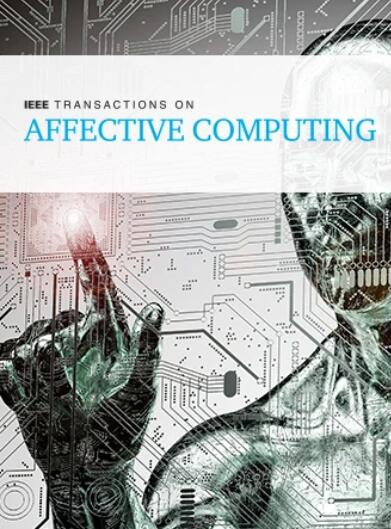加强精神障碍治疗中的情绪调节:基于 AIGC 的闭环音乐干预系统
IF 9.8
2区 计算机科学
Q1 COMPUTER SCIENCE, ARTIFICIAL INTELLIGENCE
引用次数: 0
摘要
近十年来,精神障碍迅速增加,已成为一个严重的社会健康问题。毫无疑问,及时治疗精神障碍是至关重要的。情绪调节已被证明是治疗精神障碍的有效方法。音乐疗法作为一种能够实现情绪调节的方法,在精神障碍治疗领域受到越来越多的关注。然而,传统的音乐治疗方法仍然面临着一些尚未解决的问题,如缺乏实时性和无法形成闭环系统。随着人工智能(AI),特别是人工智能生成内容(AIGC)的进步,基于人工智能的音乐疗法有望解决这些问题。本文提出了一种基于aigc的闭环音乐干预系统演示,用于调节情绪以治疗精神障碍。该系统演示由情感识别模型和音乐生成模型组成。情绪识别模型可以评估心理状态,而音乐生成模型产生相应的情绪音乐进行调节。系统不断地进行识别和调节,形成一个闭环过程。在实验中,我们首先对情感识别模型和音乐生成模型进行了实验,验证了识别模型的准确性和音乐生成模型生成的音乐质量。综上所述,我们对整个系统进行了全面的测试,以验证其可行性和有效性。本文章由计算机程序翻译,如有差异,请以英文原文为准。
Enhancing Emotion Regulation in Mental Disorder Treatment: An AIGC-Based Closed-Loop Music Intervention System
Mental disorders have increased rapidly and have emerged as a serious social health issue in the recent decade. Undoubtedly, the timely treatment of mental disorders is crucial. Emotion regulation has been proven to be an effective method for treating mental disorders. Music therapy as one of the methods that can achieve emotional regulation has gained increasing attention in the field of mental disorder treatment. However, traditional music therapy methods still face some unresolved issues, such as the lack of real-time capability and the inability to form closed-loop systems. With the advancement of artificial intelligence (AI), especially AI-generated content (AIGC), AI-based music therapy holds promise in addressing these issues. In this paper, an AIGC-based closed-loop music intervention system demonstration is proposed to regulate emotions for mental disorder treatment. This system demonstration consists of an emotion recognition model and a music generation model. The emotion recognition model can assess mental states, while the music generation model generates the corresponding emotional music for regulation. The system continuously performs recognition and regulation, thus forming a closed-loop process. In the experiment, we first conduct experiments on both the emotion recognition model and the music generation model to validate the accuracy of the recognition model and the music quality generated by the music generation models. In conclusion, we conducted comprehensive tests on the entire system to verify its feasibility and effectiveness.
求助全文
通过发布文献求助,成功后即可免费获取论文全文。
去求助
来源期刊

IEEE Transactions on Affective Computing
COMPUTER SCIENCE, ARTIFICIAL INTELLIGENCE-COMPUTER SCIENCE, CYBERNETICS
CiteScore
15.00
自引率
6.20%
发文量
174
期刊介绍:
The IEEE Transactions on Affective Computing is an international and interdisciplinary journal. Its primary goal is to share research findings on the development of systems capable of recognizing, interpreting, and simulating human emotions and related affective phenomena. The journal publishes original research on the underlying principles and theories that explain how and why affective factors shape human-technology interactions. It also focuses on how techniques for sensing and simulating affect can enhance our understanding of human emotions and processes. Additionally, the journal explores the design, implementation, and evaluation of systems that prioritize the consideration of affect in their usability. We also welcome surveys of existing work that provide new perspectives on the historical and future directions of this field.
 求助内容:
求助内容: 应助结果提醒方式:
应助结果提醒方式:


